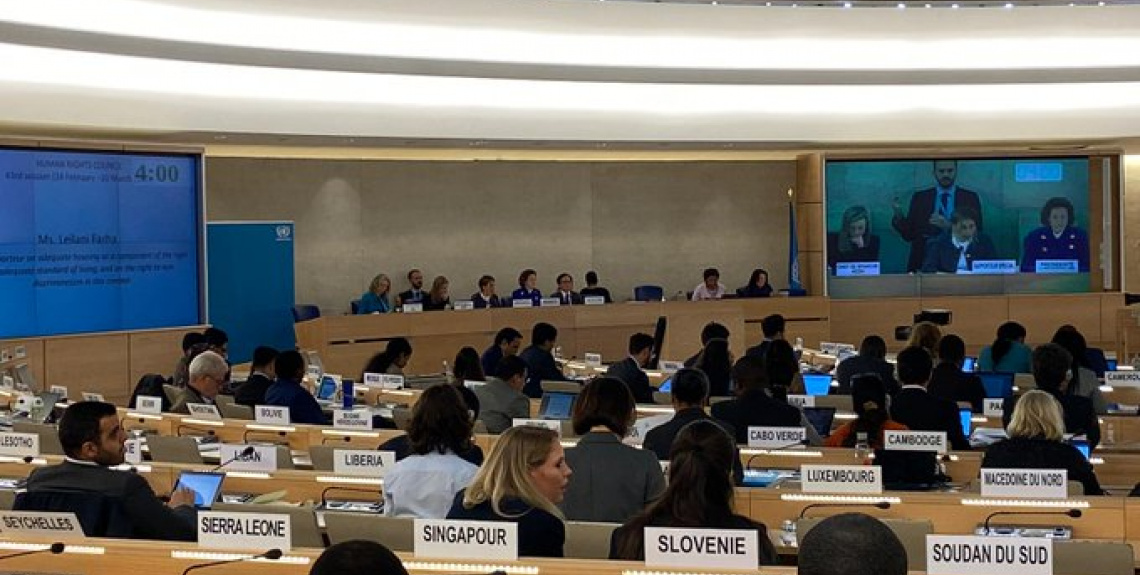The UN Special Rapporteur on the Right to Housing Leilani Farha presented last 5 March her last report to the Human Rights Council, containing a set of guidelines for the implementation of the right to housing. This report is the culmination of Rapporteur Farha’s 6 years’ mandate, which has been marked by her worldwide promotion of human rights-inspired housing strategies aimed at addressing the large-scale financialization of housing and its direct impact over the rise of socio-economic inequalities. As such, it provides a good summary of Farha’s previous work on this subject, including recommendations and proposals that are of particular relevance to local governments and the work around UCLG’s “Cities for Adequate Housing” Declaration.
The A/HRC/43/43 report is framed according to the comprehensive approach to the global housing crisis developed by UN Special Rapporteur Leilani Farha – chiefly, through her annual reports and “The Shift” movement vision. Its main aim is to provide governments and relevant stakeholders in the field of housing with a coherent set of recommendations and priority areas to be addressed in order to better protect and implement the right to housing. Indeed, and as recalled by Rapporteur Farha, even though the right to adequate housing as “a component of the right to an adequate standard of living” has been developed in international human rights law for years, States might “not always be aware of how human rights obligations apply in the context of housing” and how can these be translated into concrete actions.
[ Read the UN Guidelines on the Right to Housing ]
The report contains relevant inputs in critical areas like citizen and civil society participation in housing policies, non-discrimination or different stakeholders’ role in implementing the right to housing, including local and regional governments. It addresses “key areas of concern, including homelessness and the unaffordability of housing, migration, evictions, climate change, the upgrading of informal settlements, inequality and the regulation of business”, which are among the most pressing issues related to the global housing crisis.
In order to continue bringing the local and regional government perspective to this work, our Committee and the Research Department of UCLG (UCLG GOLD) sent a joint contribution to Leilani Farha’s Report (available here). This document contained a compilation of several local government-led practices showing their capacity to advance the implementation of the right to housing in cooperation with other stakeholders. This document gathered also key messages, challenges and priorities presented in “Cities for Adequate Housing” meetings and the report “Rethinking Housing Policies: harnessing local innovation to address the global housing crisis” co-produced by an international group of housing experts and the UCLG Research Department.


